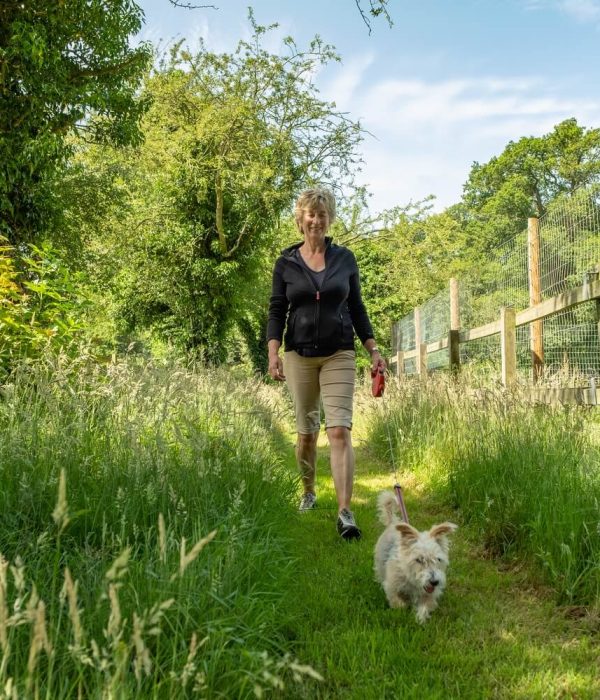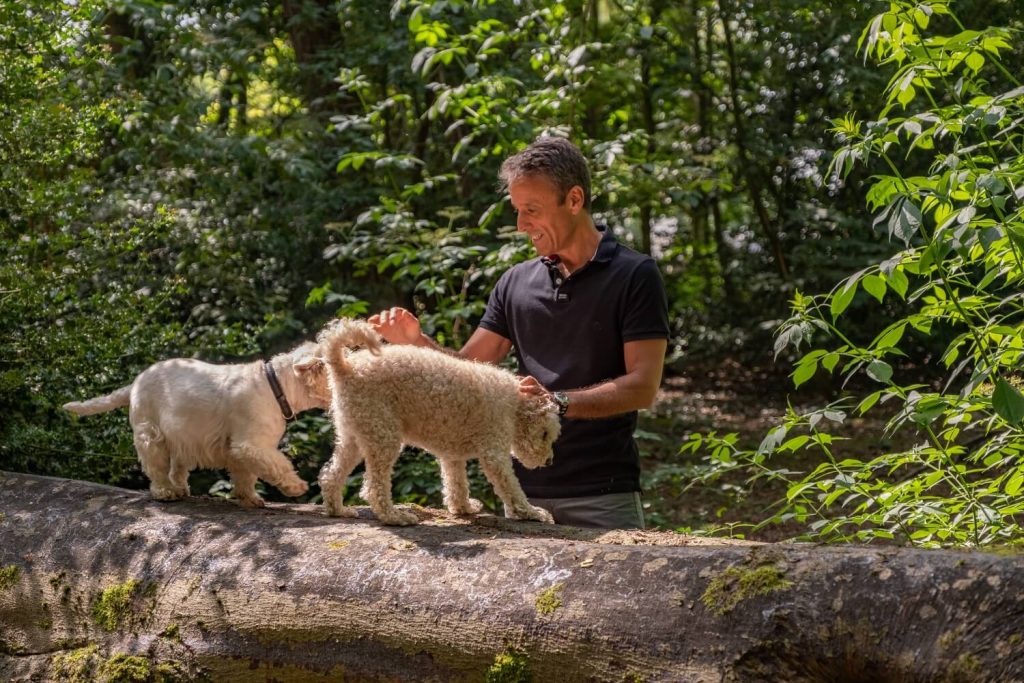Our onboarding Process
We put enormous effort into our onboarding process. We don’t throw dogs into a field with other dogs, expecting them to “get on with it”. We realise that coming to daycare can be daunting for some breeds and temperaments and so we take great care to ensure that each animal is treated as an individual, with an onboarding plan tailored to their needs. This page explains what to expect and why it’s so important to take such care introducing new dogs into a daycare environment. Not all doggy daycares will have such a process, we believe it’s vital for a safe, fun experience.
We will invite you to come for a visit with your dog so that you can see our facilities and discuss your dog’s needs and how those match up with what we offer. This gives us an opportunity to meet your dog, fully understand your requirements and assess his/her suitability for our daycare environment. This will take about 30 minutes.
If we both feel that there is a good match, we will invite your dog to come for a Trial Day. This is a normal, chargeable day at which we will be able to see how your dog behaves over the entire day. This gives us the opportunity to see if any initial anxiety dissipates and also how your dog behaves when out walking, meeting other dogs and new people. We will also observe how he/she socialises when at play and in a group.
Each stage is only performed as and when it’s deemed appropriate. A dog will not be rushed into situations that he/she is not prepared for.

You can help your dog prepare for daycare by ensuring that your puppy’s formative first weeks in your family are filled with introductions to new experiences and stimuli including meeting other dogs and people and spending some time away from you. Make playdates for your dog with other dogs so that they can develop their social skills. It’s best that their Trial Day at Active Paws does not represent their first contact with other dogs, as this may be overwhelming.
What we look for
During the Trial Day, we will be assessing the following and we will provide written feedback to you after the Trial Day.
- We will be observing whether your dog is showing any signs of stress. We use Kendal Shepherd’s ladder of communication to assess what dogs are telling us through their body language. You can find out more about Kendal Shepherd’s system here.
- We look for displays of warning behaviour such as resource guarding and competitive behaviour
- We assess how good your dog’s recall is
- We will assess his/her ability to fit into a group, how well they listen and bond with a new handler and how well they walk on a lead.
We rarely see behavioural issues at Active Paws as much of this will have been discussed during the initial phone call and visit. However, in the highly unlikely event that your dog is unable to cope with the Trial Day we may ask you to collect him/her early if it is deemed to be in the interests of your dog not to continue. In all circumstances the fee for the Trial Day will be payable due to the time and effort we will have dedicated to your dog’s onboarding.

Your responsibility to us
It is your responsibility to inform us of any unwanted behaviours that could affect the safety of your dog or other dogs that are here and also the members of our staff. These include, but are not limited to:
- Separation anxiety – a fear of being apart from you and of being in a situation with new people/dogs
- Resource guarding, aggressive behaviour, biting, poor recall, excessively high energy, rough play, lack of social skills
- Looking to escape
We usually discover these ourselves very quickly, so it’s best to tell us upfront!
Boarding
Dogs that come for regular daycare (a minimum of once per week) may be accepted for boarding. Any dog wishing to board must first complete an overnight trial, or as many as deemed necessary to fully prepare your dog for a longer stay. Some dogs are more sensitive than others and may require more visits or overnight stays in order to settle confidently. The decision to take a dog for a long stay is based on their ability to progress confidently into the environment. We take the following criteria into account:
- Socialise well with the other dogs that are boarding
- Be calm and well behaved in the house
- Must not chew beds or the house – doors, skirting board, gates etc.
- Must not suffer from separation anxiety that leads to barking, whining, urine marking, poor eating/stressful gut or attempts to escape.
- Unfortunately, we cannot accept dogs for boarding if they whine or bark through the night as it can be distressing for other guests and disturbs our sleep
- Must have good recall
When dogs are regular daycare visitors we find that they fulfil these criteria easily. If they don’t then owners need to work at home in order to develop the coping skills necessary before expecting a dog to adapt to a long stay away from home.
